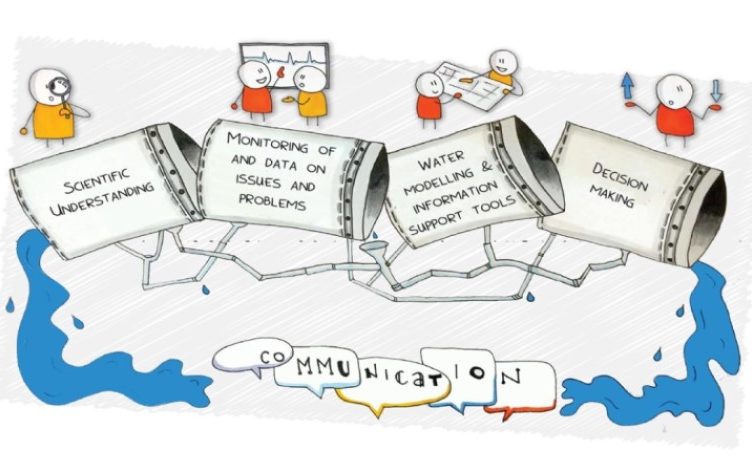
05/12/2024
Event Summary: Overview of water quality modelling projects from the Queensland Water Modelling Network with Callym Dunleavy
Read more
In the realm of modelling, where precision and innovation drive progress, the integration of diverse perspectives has historically been overlooked. On Tuesday 26 March 2024, an interested group of water professionals joined the Queensland Water Modelling Network engagement team alongside key speakers, to continue the discussion on ways to co-design with First Nations peoples values of water in water modelling.

November 2022 Workshop outcomes by Hayley Langsdorf – Thoughts Drawn Out
Following an event held in late 2022, Water Modelling through a Cultural Lens, we became aware that the colonial legacy of Australia is entrenched in the very fabric of institutions such as the Constitution and continues to shape contemporary practices. At this online event, Prof Chris Matthews FTSE Quandamooka man, Associate Dean (Indigenous Leadership and Engagement) at UTS and Chair of the Aboriginal and Torres Strait Islander Mathematical Association (ATSIMA) extended these reflections whilst observing the paradigm shift towards embracing Aboriginal knowledge within mathematical processes to benefit communities and advance math education.
Chris shared that the failure to acknowledge diverse knowledge systems not only impedes progress but also perpetuates disparities, as evidenced by the ongoing struggle to close the gap across numerous sectors. However, initiatives like ATSIMA, the development of cultural competency within organisations like the work being undertaken by Declan Hearne at Seqwater, and projects such as Bec Barnett’s that seek to incorporate First Nations peoples’ knowledge and develop meaningful relationships between communities and project teams, are beginning to flourish.
Bec, Director at Relative Creative and project lead for a recent QWMN multi-phase RDI project to establish a framework for incorporating First Nations knowledge with water modelling, shared an update of the outcomes from this multi-phase QWMN RDI project: Incorporating First Nations Knowledge in Water Modelling: A Case Study on the Application of Outcomes. Together with Water Technology, Mandandanji Traditional Owner Aunty Kay Blades, and the Qld Murray-Darling Catchments Aboriginal Rangers, the application of findings from their 2022 pilot study, has helped better refocus and better align project activities, shifting thinking towards ensuring cultural values, local knowledge and Indigenous land management practices are sought and welcomed.
Co-design processes, serve as vehicles for knowledge exchange and reconciliation however, the lack of corporate maturity in addressing First Nations issues underscores the need for sustained commitment beyond individual champions. Achieving best practices in partnerships not only requires skill development but also a willingness to listen and adapt to diverse perspectives.
Moving forward, a multi-disciplinary approach coupled with cultural awareness is essential. From incorporating local place names to recognising the interconnectedness of land and water, every step must be guided by meaningful engagement with First Nations communities. While funding and time constraints pose significant challenges, they are not insurmountable and proper remuneration for time and expertise is not only a matter of equity but also a step towards closing the gap. With executive support and a commitment to meaningful engagement, projects can yield transformative outcomes that benefit both Aboriginal communities and society at large.

The QWMN Water Modelling Pipeline, reimagined by Relative Creative and Water Technology in a 2023 QWMN RDI project.
During the session we held small group discussions where participants from across the sector provided feedback on two questions:
Below is a collation of the responses from this activity.
In conclusion, the journey towards integrating Aboriginal knowledge into water modelling processes is not merely about numbers and equations, it is about recognising the inherent value of diverse perspectives, fostering relationships built on respect and trust, and ultimately, creating a more inclusive and equitable future for all.
Watch online event recording